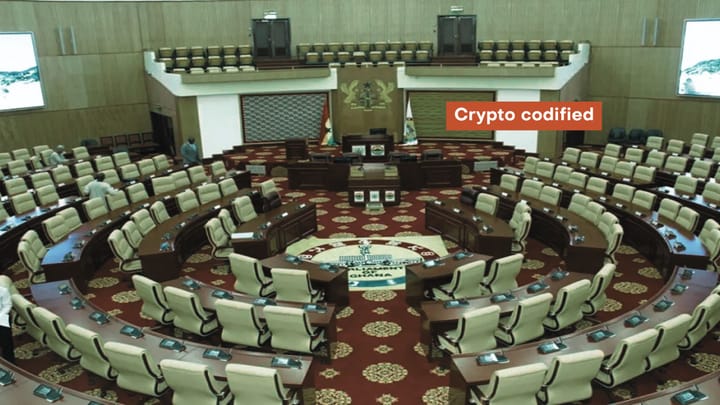Experts call Nigeria’s crypto tax regime “progressive”
At a series of Mariblock webinars last week, experts in tax and digital assets said the new tax laws put a stamp on the legitimacy of the sector.

Nigerians are preparing for a new tax regime effective from January 2026. For the crypto community, this marks unfamiliar territory as regulations tighten around digital assets.
The core idea of crypto itself — decentralization — rejects regulatory oversight. How do you regulate a borderless technology designed to move value seamlessly across the world, cutting through multiple jurisdictions with different financial laws?
Still, as adoption grows, governments everywhere are scrambling to respond. With the global crypto market capitalization surging, regulators fear being left out of a system that could move vast amounts of money beyond their reach. Their solution is twofold: protect monetary sovereignty and capture new revenue streams. Clearer tax laws are emerging worldwide, and Nigeria is now joining that list.

Quick recap: Nigeria’s crypto tax regime
In late June, the Nigerian government signed the Nigerian Tax Act and the Nigerian Tax Administration Act 2025 into law. Starting January 1, 2026, these new rules will bring crypto transactions under the tax net for both individuals and companies, replacing the previous patchwork of unclear regulations. Until now, tax authorities had applied existing tax laws to crypto firms without any specific framework for digital assets or exchanges.
Under the new framework, crypto assets will be treated as property and will not be taxed simply for being held. Tax liability arises only when a taxable event occurs, such as when assets are sold or exchanged for a profit. Those profits will be subject to personal income tax charged on a sliding scale, capped at 25%.
For businesses, crypto companies, and exchanges earning ₦25 million to ₦100 million annually will pay a 20% corporate income tax, while those earning over ₦100 million will pay a 30% tax. Additionally, all companies subject to corporate income tax will also pay 7.5% VAT on the transaction fees they charge.
What are experts saying?
Mariblock, in partnership with the Stakeholders in Blockchain Technology Association of Nigeria (SiBAN), hosted two webinars last week to unpack Nigeria’s new crypto tax rules. The sessions brought together voices from both the legal and crypto sectors to gather facts, perspectives, and concerns about the regime.
Many in the industry argue that taxing crypto runs against the principle of decentralization, while others believe the government should not “reap where it did not sow” by taxing a sector it once banned and has done little to support. Critics have also described the laws as oppressive and another attempt to squeeze Nigerians financially.
But not everyone agrees. Chiemeka Ohajionu, partner at Lagos-based Atlas Legal Practitioners, described the new tax policy as progressive and necessary. In his view, taxation is standard in every country, and the real issue is holding the government accountable for how the revenue is used.
“Every country has tax laws and fiscal policies to ensure that the government generates revenue. Contrary to popular impression and media outrage, the tax regime is not as oppressive as people make it out to be. As a matter of fact, it is a very progressive policy,” he said.
Tayo Omidiran, head of operations at Africa- and Asia-focused exchange KoinKoin, shared a more nuanced view. He agreed that taxation could give the sector legitimacy, structure, and full legal recognition.
“It is a good thing that the federal government wants to start collecting taxes in our line of business because I believe it gives us more credence and makes us more of a stakeholder,” he said.
However, Omidiran also stressed the need for clearer guidelines on the role of exchanges in reporting, collecting, and remitting taxes.
Nuances
While the new law spells out tax requirements, it also includes exemptions and bands highlighted during the webinars. For instance, individuals earning less than ₦800,000 annually and companies making under ₦25 million will be exempt from taxes.
Dr. Lawal Mohammed, director at crypto tax compliance firm Chainkeeping and executive director of revenue operations at the Kaduna State Internal Revenue Service, outlined ways taxpayers can legally reduce their obligations.
He explained that external financing and loans can be used to lower taxable income since loans are not taxable. This, he stressed, falls under legal tax avoidance, which is different from outright tax evasion, a criminal offense.
“Within the tax laws, there are rules that allow us to cut down our taxes. For example, you can reduce your tax by leaning on external finance because if you are borrowing to finance, you are allowed to remove your finance costs for the purpose of taxes,” he said.
On the absence of crypto-specific tax incentives, Mohammed argued that granting them could set a precedent for every sector to make similar claims, making the law cumbersome and inefficient. Instead, he pointed to industry-specific regulations from the Securities and Exchange Commission (SEC) or the Central Bank of Nigeria (CBN) as avenues to reward early players. These could include targeted benefits, such as five-year tax cuts, to encourage pioneers in the blockchain and crypto space and boost investment.
The discussions highlighted both the skepticism and cautious optimism surrounding Nigeria’s new tax rules. However, this is not a debate that will end in a single webinar or through a single policy. Nigeria’s crypto future will be shaped by the push and pull between innovators, regulators, and everyday users trying to make sense of a fast-changing system.
To get there, we need more open forums where difficult questions can be asked and answered. That’s why we’re hosting the Onchain Conference this November — to keep these conversations alive and push the industry forward. The inaugural edition will take place on November 5-6, 2025, at the Jewel Aeida in Lagos, in partnership with Busha. Visit onchain.mariblock.com to register.




